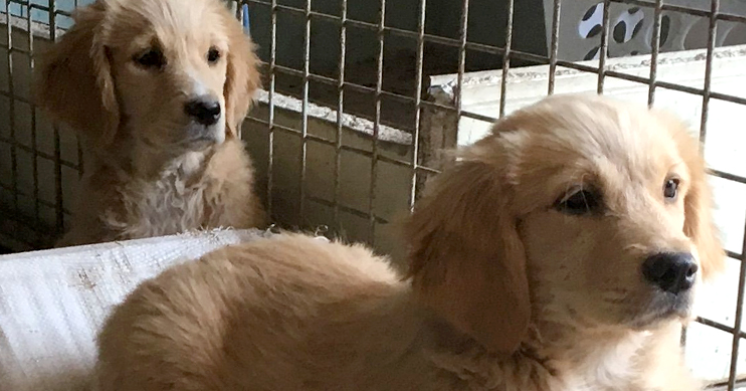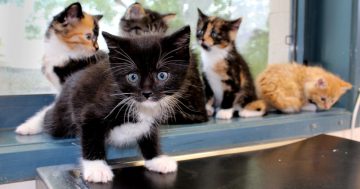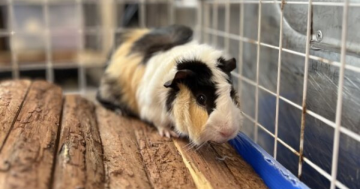
The pandemic has boosted the market for puppy farms producing ‘fashionable’ breeds. Photo: RSPCA.
The pandemic has had a mixed effect on animal welfare in Australia.
Thousands have rushed to bring a pet into their lives as a way of adding some light during a depressing and isolating time of intermittent lockdowns and travel restrictions across the country. But with the sudden yearning for a pet comes some pretty dubious decision-making on where and how to find a puppy or kitten to purchase.
I’m a die-hard animal welfare advocate and have fairly strict views on how we should approach introducing a pet to our families and what responsibilities that entails.
Maybe because of this, many of my friends and family ask me for advice on how to go about ethically adopting or buying a dog or cat. They usually then promptly ignore any advice I offer and do the thing that they were always going to do – they go online, google ‘cavoodle’ or ‘ragdoll kitten’, and buy one for some enormous sum of money from a dodgy online ad.
These are people who are clever and discerning about everything else they consume and use a values-based approach to many other significant decisions, whether it be buying sustainable and recycled groceries, avoiding palm oil, reducing plastic use, buying an environmentally friendly car, not supporting sweatshop labour, etc. But when it comes to animals, the principles of ethical consumerism and reducing the harm they might cause with their decisions seems to fly out the window in favour of instant gratification.
I’ve had people tell me that while they would really love to adopt a dog, the rescues for the specific breed they want rarely have dogs available, and they want one now, so really, they’ve done what they can, and now they’re going to get one from the ad online that has no registered breeding number and looks a lot like a puppy farm.
Or that, while they would normally buy from a responsible breeder, the only ones they can find are too far away and won’t have another litter this year, so they did their best, but they’re going to contact the dodgy place advertising year-round French Bulldogs.
The core belief underpinning these decisions is that they deserve the dog or cat they want because they want it. They aren’t willing to compromise on age, breed, or timeframe because they ultimately care more about their gratification than the animal’s welfare when it comes down to it. The animal, to them, is a product, and they believe the customer is always right.
If I sound judgemental, it’s because I am – and I have no issues with claiming that. My firm belief is that pets should only be brought into a family if all of their needs can be properly met and that there is no justification ever for supporting unethical breeding of pedigree cats and dogs.
I understand that many people have breed preferences when it comes to dogs, in particular, and there are valid reasons for this – different breeds will suit different accommodations, lifestyles etc. I don’t think that all breeding should be banned because I can see value in celebrating different breeds’ unique characteristics and features. I think there is a good middle ground where breeders can breed to scientifically backed breeding standards, with limits on numbers and strict selling guidelines.
I know many amazing people who have waited, connected with the right organisations to find out the most ethical way to find a dog of their preferred breed, and waited patiently to either rescue or buy one from a responsible breeder. It’s possible to do this. It’s just that so many people are willing to put their needs first and do the wrong thing.
I find it genuinely mind-boggling when I see people who I know are smart, principled and critical thinkers celebrating picking up a too-young puppy via a Gumtree ad from a car park somewhere, handing over cash for their new animal and not questioning even once whether they’re supporting a dodgy enterprise.
Nobody is owed or entitled to a pet. Animals are not here to provide entertainment and satisfy our whims. They are complex, vulnerable creatures who deserve to be treated like individuals and not accessories. Instead of framing your decision making around what you want and need from a pet, maybe think about what they deserve from you. If you can’t meet their needs, they shouldn’t be expected to meet yours.





















